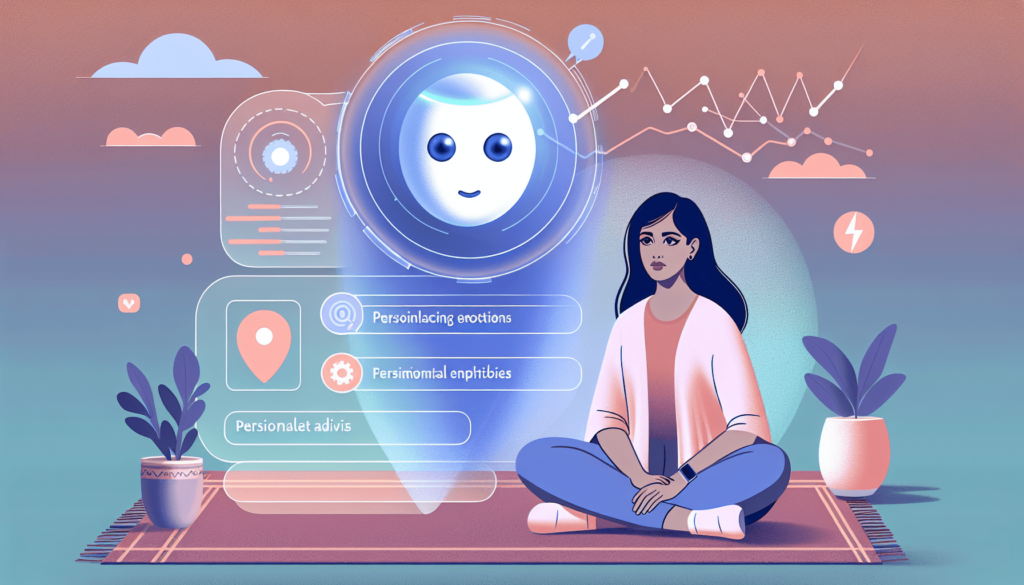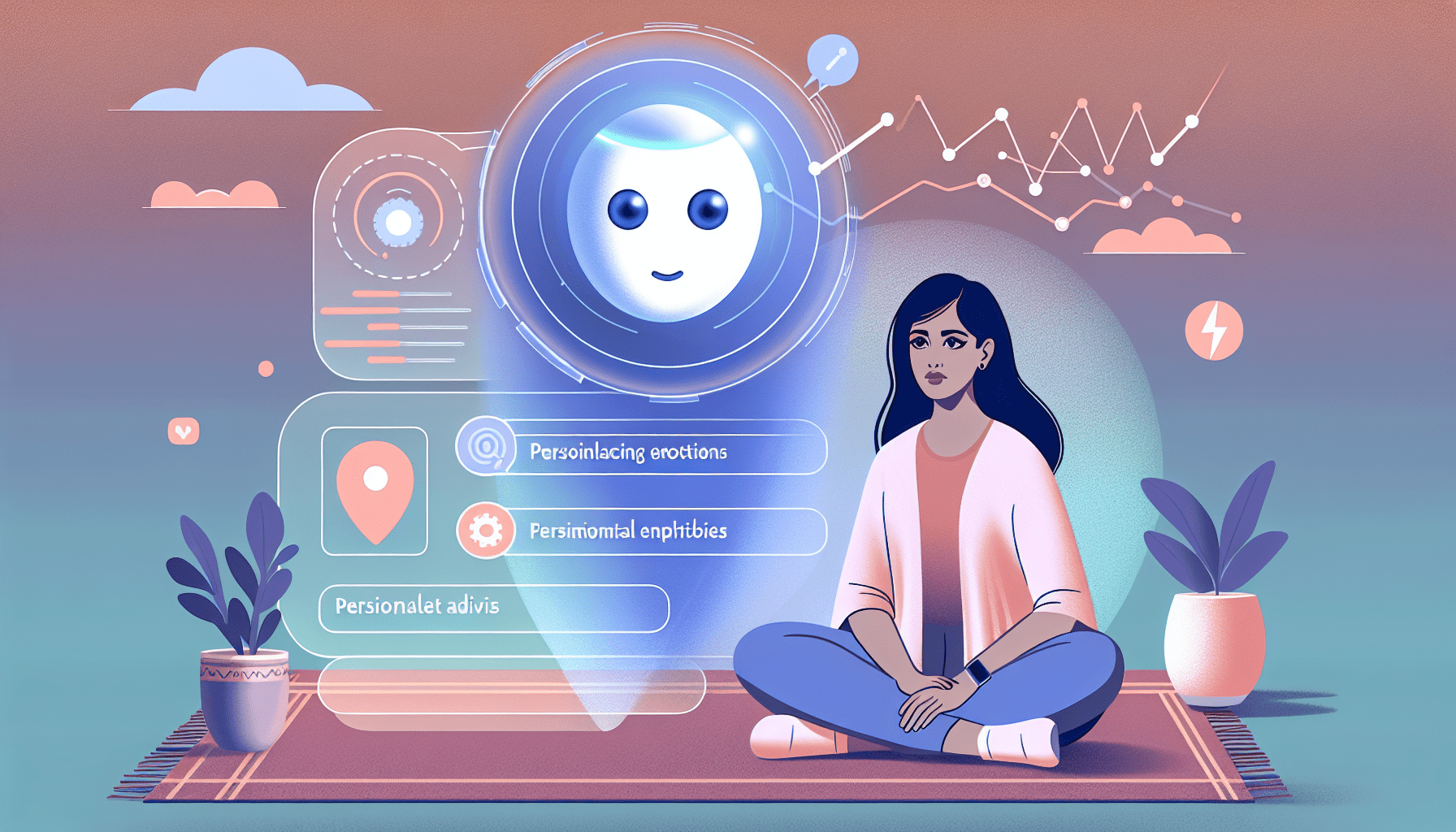In the fast-paced and ever-evolving world of mental health treatment, virtual assistants have emerged as a promising tool in the field of Cognitive Behavioral Therapy (CBT). These AI-powered assistants are revolutionizing the way individuals can access and engage with therapy, providing a friendly and convenient platform for self-improvement. With their ability to offer personalized support, deliver interactive exercises, and create a sense of connection, virtual assistants have the potential to greatly enhance the effectiveness and accessibility of CBT for individuals seeking to improve their mental well-being. In this article, we will explore the groundbreaking role of virtual assistants in cognitive behavioral therapy for mental health, highlighting their benefits and addressing any potential concerns or limitations.
What is Cognitive Behavioral Therapy (CBT)?
Cognitive Behavioral Therapy (CBT) is a widely used form of psychotherapy that focuses on improving mental health by addressing the connection between thoughts, emotions, and behaviors. It is based on the belief that our thoughts and perceptions influence our feelings and actions. CBT aims to identify and challenge negative or unhelpful thought patterns, replacing them with more positive and adaptive ones. It is a goal-oriented and practical approach that can be highly effective in treating a range of mental health disorders, including anxiety, depression, and phobias.
CBT typically involves a series of structured sessions with a trained therapist who guides you through various techniques and exercises. These can include cognitive restructuring, where you learn to identify and change negative thoughts, and behavioral activation, where you engage in activities that promote positive emotions. The therapist also works with you to set specific goals and develop strategies for achieving them. CBT is often described as collaborative and interactive, as it actively involves you in your own treatment process.
The Role of Virtual Assistants in Mental Health Treatment
Virtual assistants, such as AI-powered chatbots or voice-activated systems, are increasingly being integrated into mental health treatment. These digital tools are designed to simulate human conversation and provide support, guidance, and resources to individuals seeking help for their mental health concerns. While they do not replace traditional therapy or diagnose mental health conditions, virtual assistants can complement and enhance existing treatment methods. They offer a convenient, accessible, and cost-effective way to support individuals in optimizing their mental well-being.

Benefits of Virtual Assistants in Cognitive Behavioral Therapy
Improved Accessibility and Convenience
One of the significant advantages of virtual assistants in CBT is their ability to increase accessibility to treatment. Traditional therapy can be challenging to access due to factors such as long waiting lists, geographical limitations, or financial constraints. With virtual assistants, therapy becomes available at your fingertips, anytime and anywhere. Whether you’re sitting at home or on the go, you can access support and tools through your smartphone or computer. This enhanced accessibility ensures that individuals who may have otherwise struggled to receive treatment can now seek help conveniently.
Enhanced Privacy and Confidentiality
Privacy and confidentiality are crucial aspects of mental health treatment. Some individuals may feel uncomfortable discussing their concerns face-to-face with a therapist due to fear of judgment or breach of confidentiality. Virtual assistants provide a safe and anonymous space for individuals to express their emotions and share their experiences. Communicating with an AI-powered system eliminates the social barriers that may prevent individuals from seeking help. By maintaining privacy and confidentiality, virtual assistants create an environment that encourages openness and honesty, crucial for effective cognitive behavioral therapy.
Enhanced Engagement and Motivation
Virtual assistants offer an interactive and engaging experience that can boost motivation and encourage individuals to actively participate in their treatment. Through personalized conversations, reminders, and progress tracking, virtual assistants can provide ongoing support and encouragement. They can help you stay motivated in completing therapy exercises, implementing new coping strategies, or challenging unhelpful thoughts. The interactive nature of virtual assistants also helps you develop a deeper understanding of your own thoughts, emotions, and behaviors, promoting self-awareness and facilitating growth.
Personalized and Tailored Therapy
Each individual’s journey through therapy is unique, and virtual assistants can adapt to specific needs and preferences. By collecting data and analyzing patterns, virtual assistants can provide personalized recommendations and interventions. They can identify areas of focus, track progress, and suggest specific techniques or exercises based on your individual goals. This tailoring of therapy ensures that you receive targeted support and intervention, increasing the effectiveness of your treatment.
Assistance with Skills Acquisition and Practice
Learning and applying new skills and techniques is a fundamental aspect of CBT. Virtual assistants can serve as valuable guides in this process, providing step-by-step instructions and demonstrations. They can help you acquire and practice skills such as relaxation techniques, mindfulness exercises, or behavior tracking. Virtual assistants can also provide feedback and reinforcement, ensuring that you are correctly implementing the skills you have learned. This assistance with skills acquisition and practice can accelerate the learning process and improve the success rate of cognitive behavioral therapy.
24/7 Availability and Support
Mental health concerns can arise at any time, and having access to support when it is needed most is crucial. Virtual assistants operate 24/7, providing round-the-clock availability and support. Whether you are experiencing a crisis, struggling with intrusive thoughts, or simply need someone to talk to, a virtual assistant is there to lend a listening ear. This continuous support can provide reassurance, comfort, and guidance during challenging moments, promoting better mental health outcomes.
Conclusion
Virtual assistants have revolutionized the field of mental health treatment, offering numerous benefits in the context of Cognitive Behavioral Therapy. Their improved accessibility, enhanced privacy and confidentiality, and personalized nature make them powerful tools in optimizing mental well-being. By providing assistance with skills acquisition, enhancing engagement and motivation, and offering 24/7 availability and support, virtual assistants contribute to more effective and convenient therapy experiences. While virtual assistants do not replace the expertise and guidance of a trained therapist, they serve as valuable adjuncts in the journey towards better mental health.




